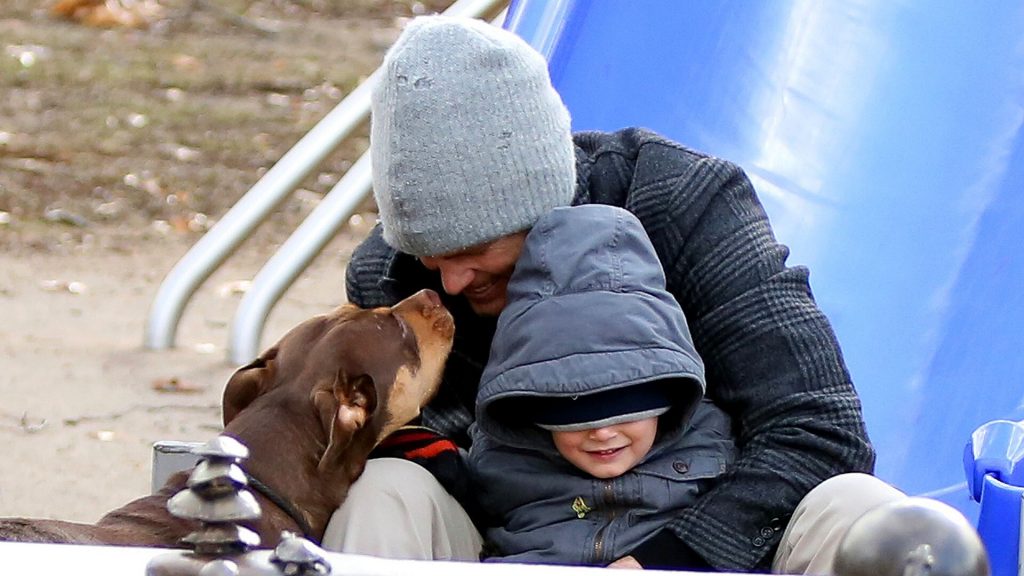Tom Brady’s dog is a clone created by company bringing back dire wolf, woolly mammoth

Tom Brady announced this week that his new dog is actually a clone created from another pet that died nearly two years ago. Brady thanked the company behind the cloning, Colossal Biosciences, which has made headlines for its efforts to bring prehistoric species back to life, for giving him and his family “a second chance with a clone of our beloved dog,” according to a statement obtained by People.
“I love my animals. They mean the world to me and my family,” Brady added.
Colossal Bioscience’s other endeavors
Brady is an investor in Colossal Biosciences, which announced that it has brought the first dire wolves back from extinction and is currently working to bring back the woolly mammoth, along with de-extinction efforts for other species.
The Brady family’s original pooch, Lua, reportedly died in December 2023, according to his ex-wife, Gisele Bundchen.
Pictures of Lua, which was reportedly a pit bull mix, filled the social media accounts of Brady and Bundchen following the pet’s death, with Bundchen writing, “She will forever live in our hearts.”
Brady said the company cloned the dog using “a simple blood draw of our family’s elderly dog before she passed.” He said that in just a matter of months, Colossal provided him with a clone of Lua, which has since been named Junie.
Growing trend of celebrity pet cloning
The legendary quarterback’s announcement coincided with Colossal’s reveal on Tuesday that it has acquired Viagen Pets and Equine, which touts itself as “the global leader and expert in animal cloning.”
Unbiased. Straight Facts.TM
“Dolly” the sheep was the first mammal to be cloned in 1996, created from a cell taken from an adult animal.

According to The Washington Post, Viagen previously helped celebrities like Barbara Streisand and Paris Hilton receive clones of their dogs. Hilton, who is also an investor in Colossal, obtained two clones, while Streisand obtained three, one of which she gave to the daughter of a friend.
Billionaire Barry Diller, who made his fortune building a media empire, and his wife, Diane von Furstenberg, reportedly have three clones of their Jack Russel terriers.
Argentina’s president, Javier Milei, also cloned his dog “Conan” with the help of PerPETuate, a company led by Ron Gillespie, who also has a firm that specializes in “genetic preservation,” according to The New York Times.
Viagen charges $50,000 for a clone of a cat or dog and $85,000 for a cloned horse. The firm claims it plays a “key role in preserving and reviving the genetics” of exotic animals, including some endangered species, such as the white and black rhinos, as well as other species.
Brady says he’s “excited” with the new possibilities that the merging of the two companies brings. He claims it could “help both families losing their beloved pets while helping save endangered species.”
Critics of cloning argue it presents cruel realities
Critics argue that pet cloning can involve inhumane practices by potentially creating multiple animals only to be discarded as scientists seek to create the exact clone of the original pet. Animal rights advocates argue that the more humane alternative is to rescue a dog or cat already in need of a home from a shelter.
“PETA empathizes with Tom Brady and anyone grieving the loss of a beloved companion animal, but the best way to honor them is to recognize that they aren’t replaceable and adopt,” a spokesperson for the group said in a statement obtained by the Post.
“Definitely don’t clone … as not only won’t the engineered new dog inherit the original’s temperament or lovable quirks, but cloning’s high failure rate means that many dogs are caged and tormented for every birth that actually occurs,” the spokesperson added. “And what a losing game for all the wonderful, deserving dogs in shelters who lost their chance at a home.”
The post Tom Brady’s dog is a clone created by company bringing back dire wolf, woolly mammoth appeared first on Straight Arrow News.





